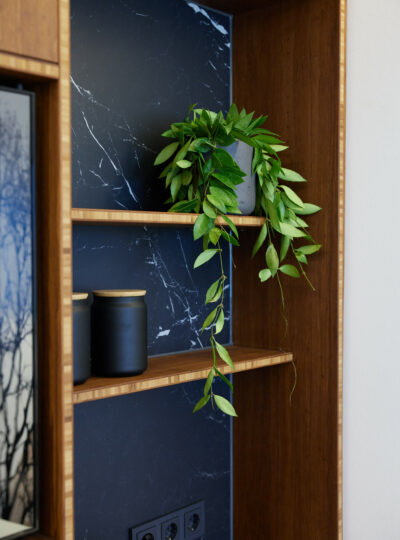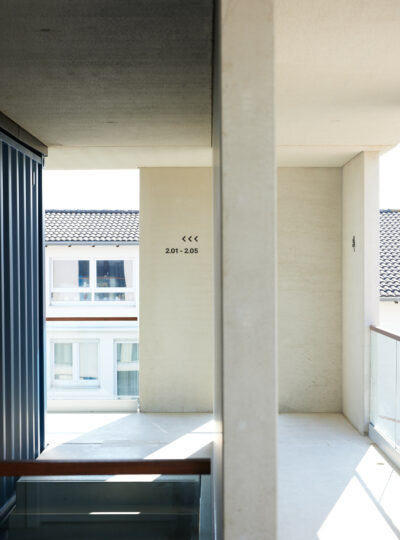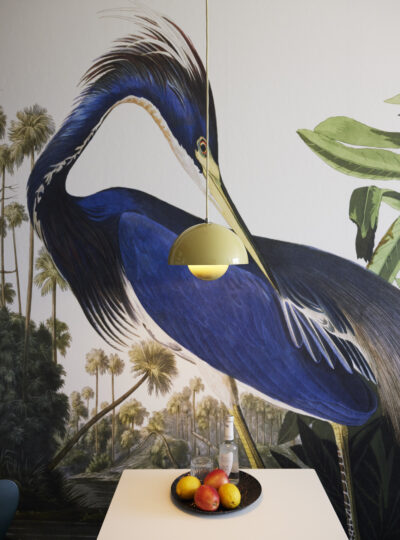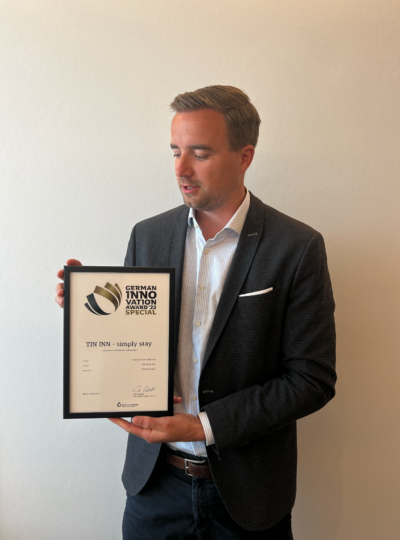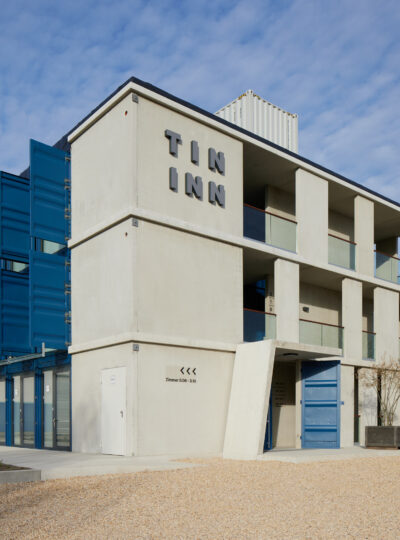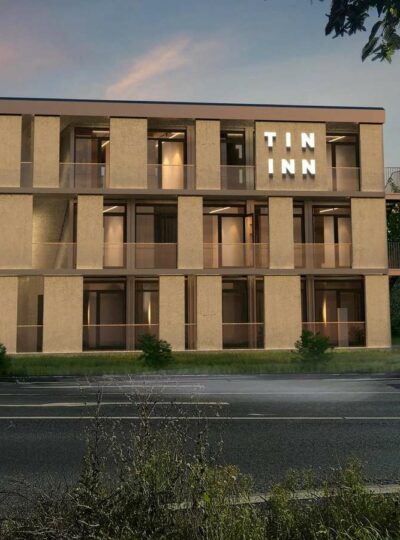By Jürgen Menke – wa.de
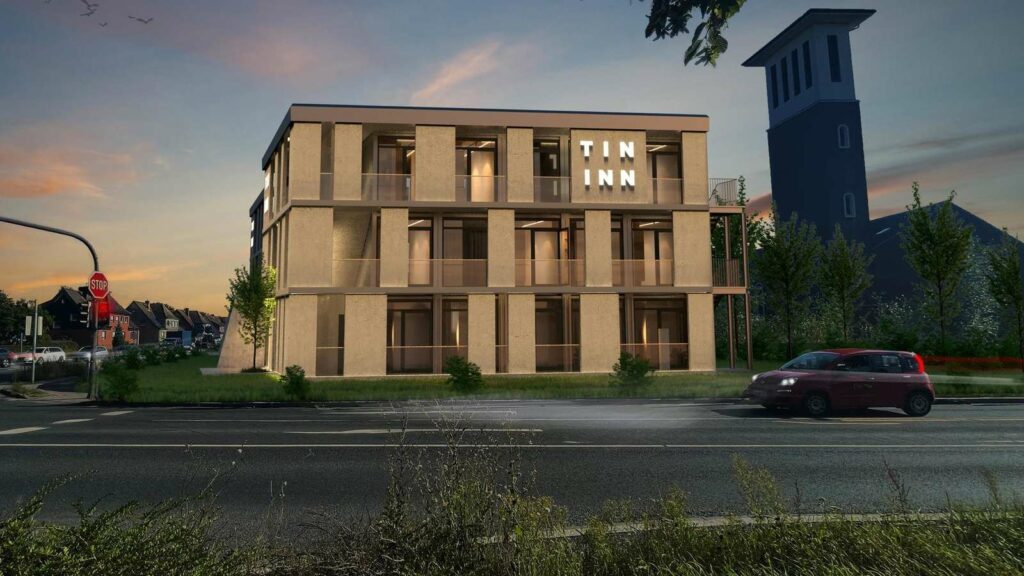
In Bergkamen, a hotel is planned that could be quickly dismantled and rebuilt elsewhere – from used sea freight containers. The developer and operator promises its guests a modern ambience in ten single and double rooms each.
Bergkamen – The location of the new building is the Jockenhöfer intersection (Werner Straße/Westenhellweg) in the Rünthe district. Another investor wanted to build a hotel here in modular construction – but it never happened. The project now presented seems to be well underway. In these days the building application should be submitted. In other cities, the same buildings have already been approved, they say.
Smaller cities in view
“Tin Inn” is the name of the hotel. It will be built and operated by Nico Sauerland, Ivan Mallinowski and Michael Haiser – three partners who are also responsible for the business of “Containerwerk eins GmbH”. The company in Wassenberg (Heinsberg district), with 80 employees, has been refurbishing sea containers on behalf of customers for six years – converting them, for example, into living and storage spaces, vacation homes or offices.
“At some point, we came up with the idea of building and operating our own hotels,” Sauerland says. In 2023, the young company wants to realize several properties at once – in order to then continuously expand the chain. The sites in Erkelenz, Montabaur, Hückelhoven and Heinsberg are currently in the pipeline. The first sea container hotel in the Ruhr region would be built in Bergkamen.
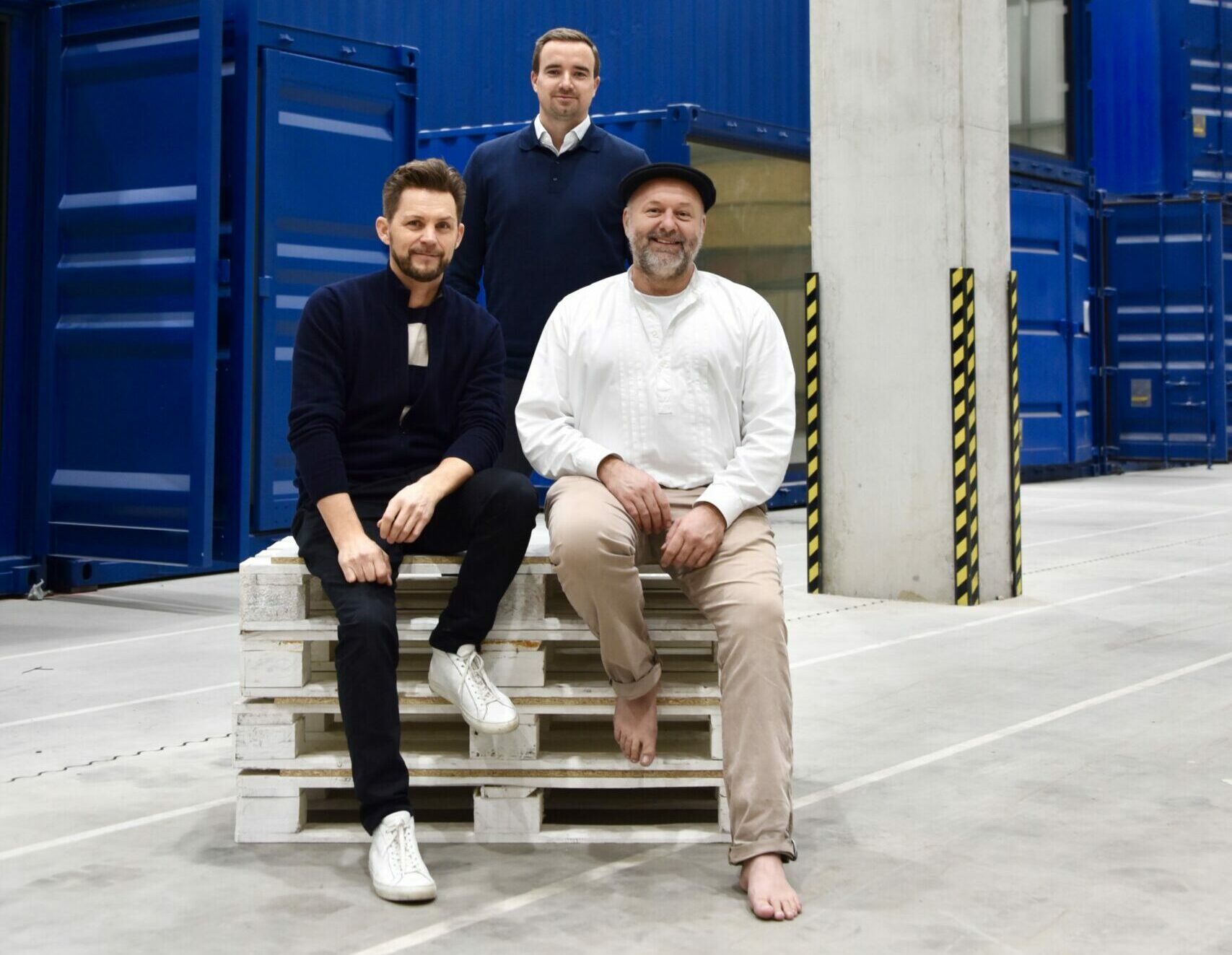
“We’re going into cities that are too small for the big hotel chains,” Sauerland says. The target group includes business travelers and guests at family celebrations. The Rünth location is also interesting in view of the surrounding leisure facilities. Sauerland mentions the marina, the water city that is currently being developed, and the planned “Surfwrld” in Werne.
Sea containers are a dime a dozen, Sauerland points out. There are between 40 and 50 million on the world’s oceans, and millions are exchanged for new ones every year. “So we don’t have to worry about supplies.”
Patented method
Some of what is discarded ends up in Heinsberg, where it is reconditioned from scratch. “We have a patented method that we use to insulate the containers. We spray them out,” Sauerland tells us. The cargo containers would then be painted on the outside and – depending on the specifications – receive their fittings, such as windows and doors. “In the hotel sector, of course, shower and toilet are also part of it.”
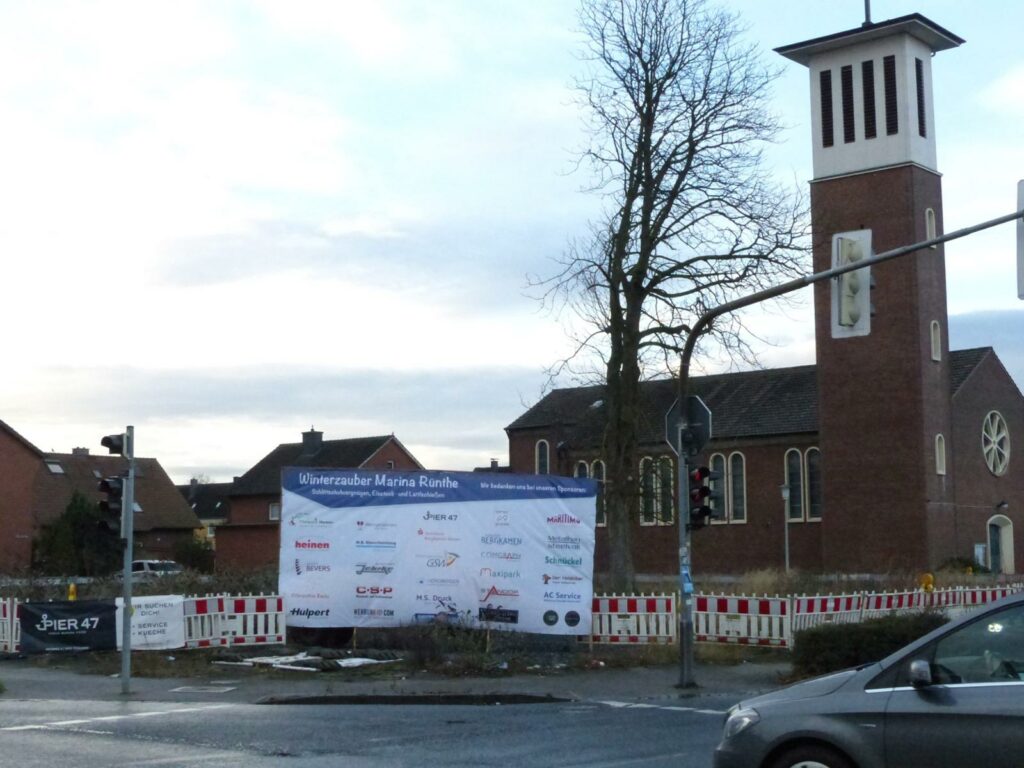
Photo: Jürgen Menke
A Tin Inn hotel consists of 15 sea containers, five on top of each other. The lower ones are divided, so there are always two single rooms. They and the double rooms upstairs can be reached via a staircase, where there is also a food vending machine. On the sealed roof of the building, the complete building services are located in another container. “Heating is provided by renewable energy and an air-source heat pump,” Sauerland explains. Thanks to the insulation, the building meets the KfW 40 standard.
Serial construction
Thanks to a high degree of prefabrication, the construction of a hotel takes just three months – “one each for the earthworks, for the installation and for the commissioning,” Sauerland clarifies. The serial construction method also has a positive effect on construction costs. To make a Tin Inn hotel ready for operation – including filling the mini-bars – around 1.7 million euros would be invested. “That’s low compared to other hotel construction.”
However, the cost of the land must also be added. Tin Inn” does not want to buy this from the owner in Rünthe, but wants to lease the area. “It’s about 15 years for now,” Sauerland says. Then both parties would have the option to terminate the cooperation. As I said, a “Tin Inn” can be quickly dismantled and reassembled.
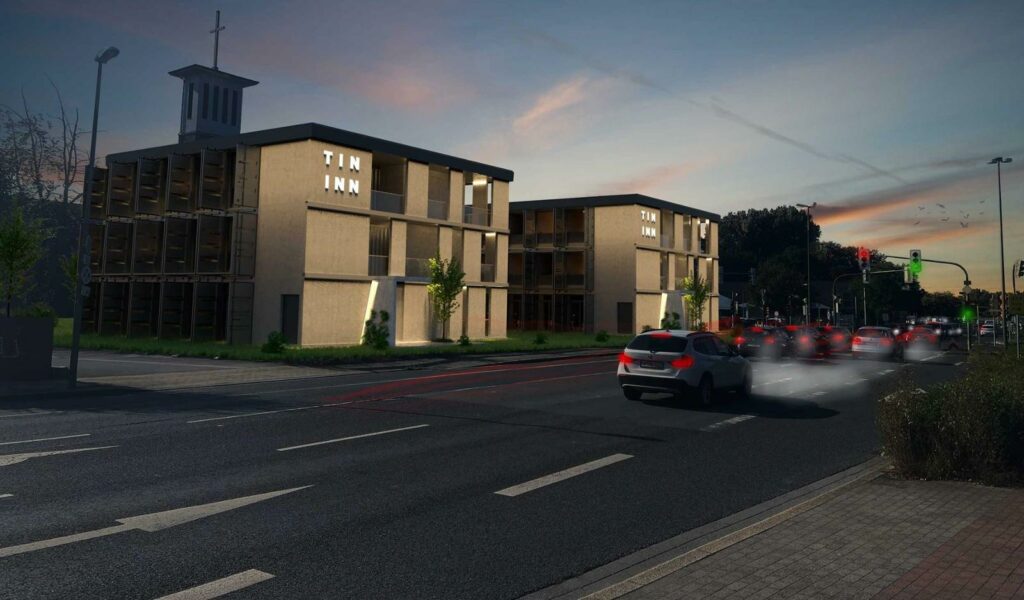
The hotel is to be accessed via Westenhellweg. “We plan to have as many parking spaces as rooms,” Sauerland says. If the concept in Rünthe works out and offers further potential, the operator wants to build a second hotel right next to it on land that has already been leased.
Sustainability and digitality – these are the guiding principles in the development of the hotel chain, says Sauerland. First of all, the containers (“They last a good 70, 80 years”) would be saved from melting down, and the technology and equipment would also take environmental considerations into account.
Book online, pin by mail
Digital solutions also ensured low running costs. “Customers book and pay for their room online and receive a pin number for their room before they arrive,” Sauerland explains. A call center staffed around the clock is available for open questions. “The bottom line is that we need two cleaners each for hotel operations and the call center staff.”
According to Sauerland, overnight rates can change depending on supply and demand. A guideline would be about 65 euros per night. “That’s healthy midfield.” The first “Tin Inn” to go on the market will be the house in Erkelenz at the end of February, announces the 36-year-old business economist. Then – still in 2023 – up to seven more. “I hope Rünthe is in the mix.”
